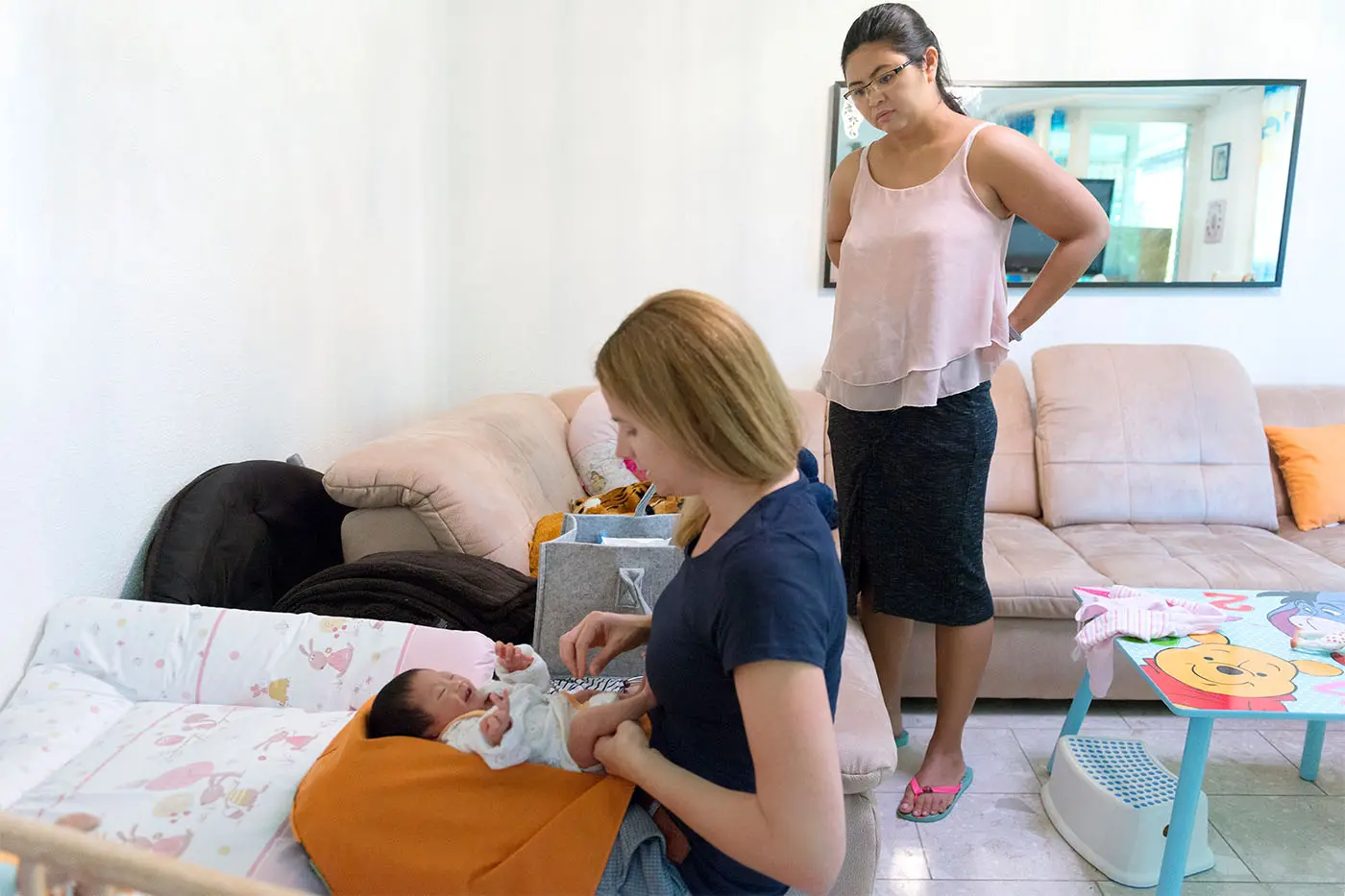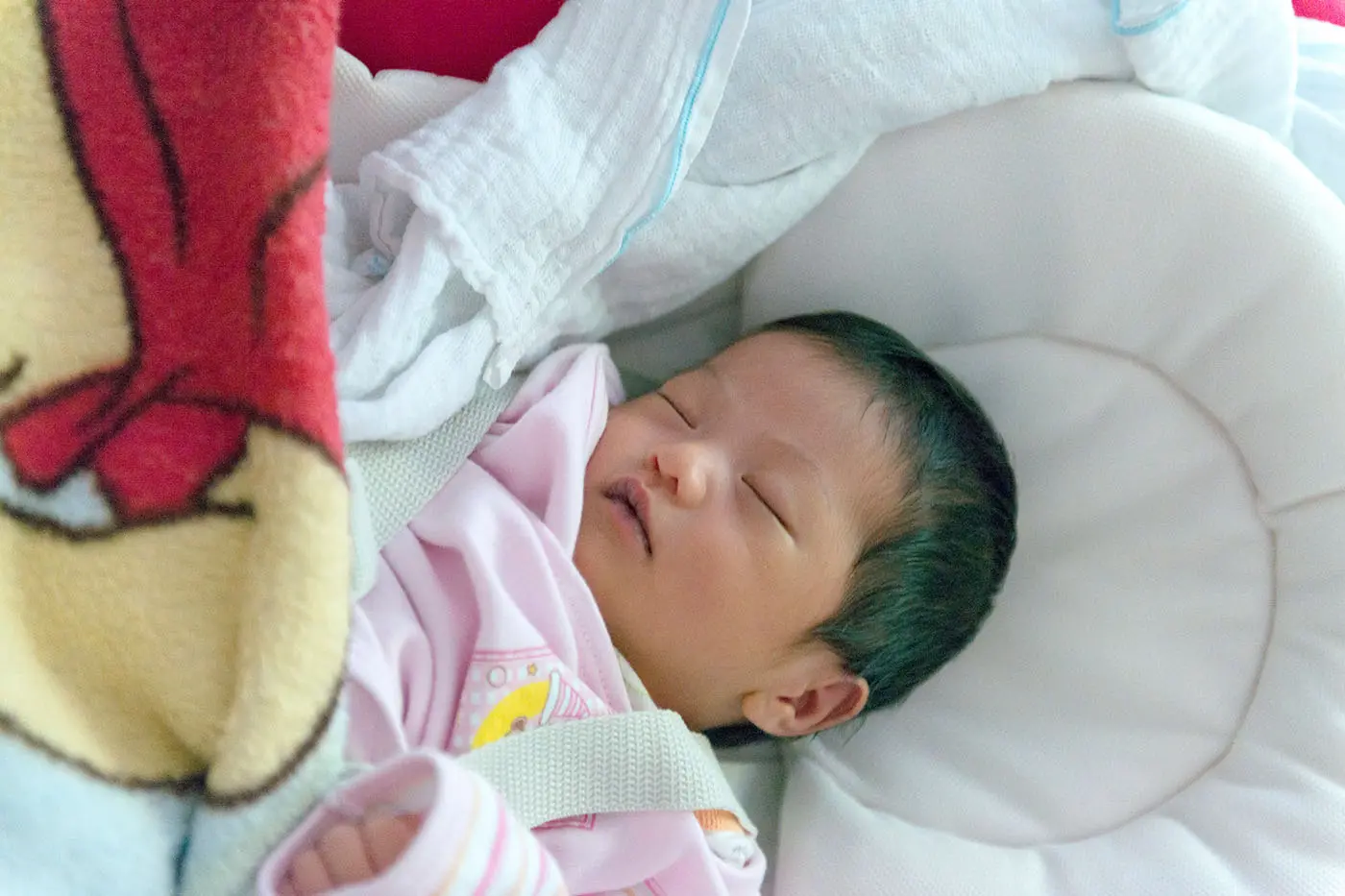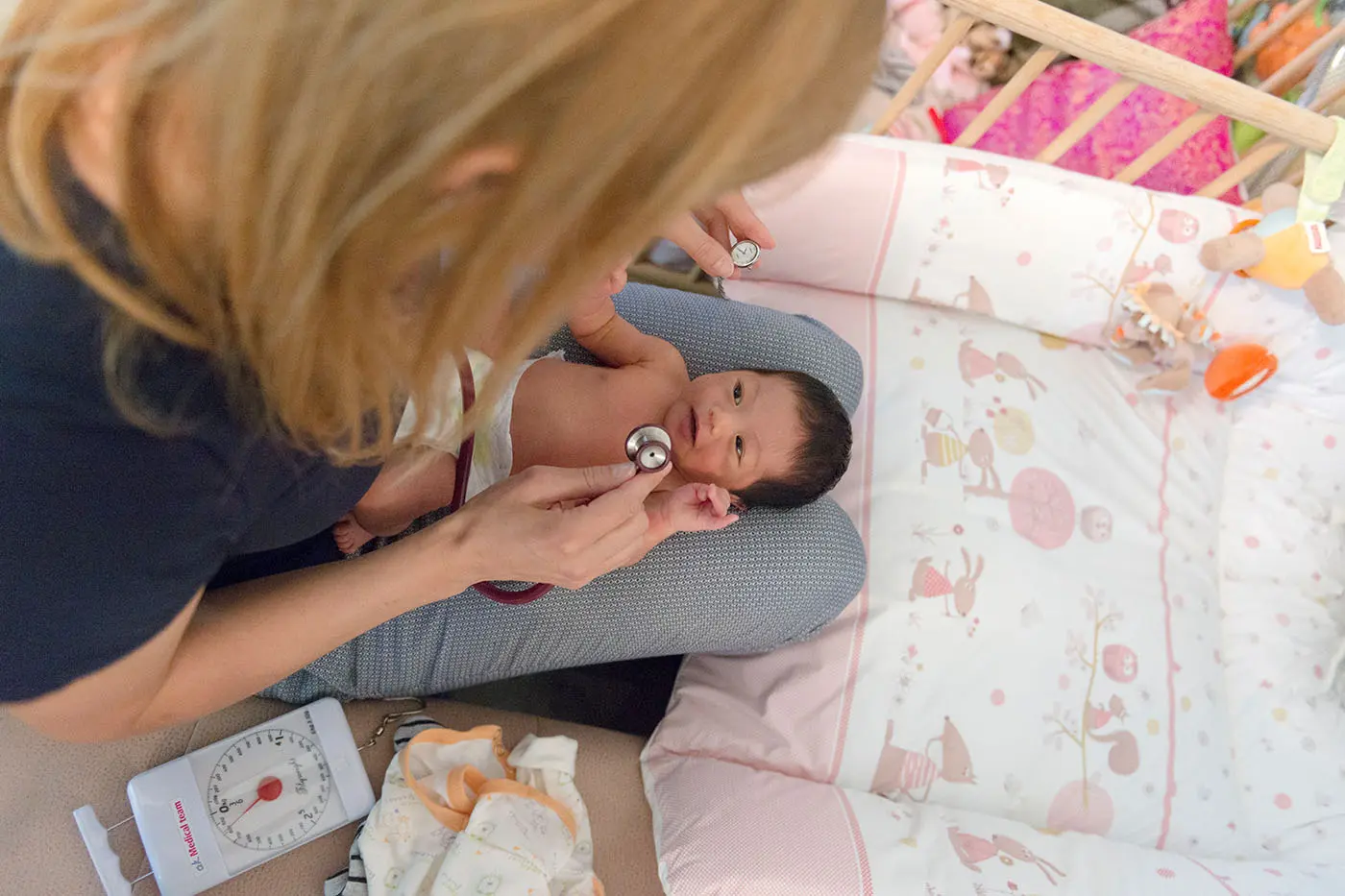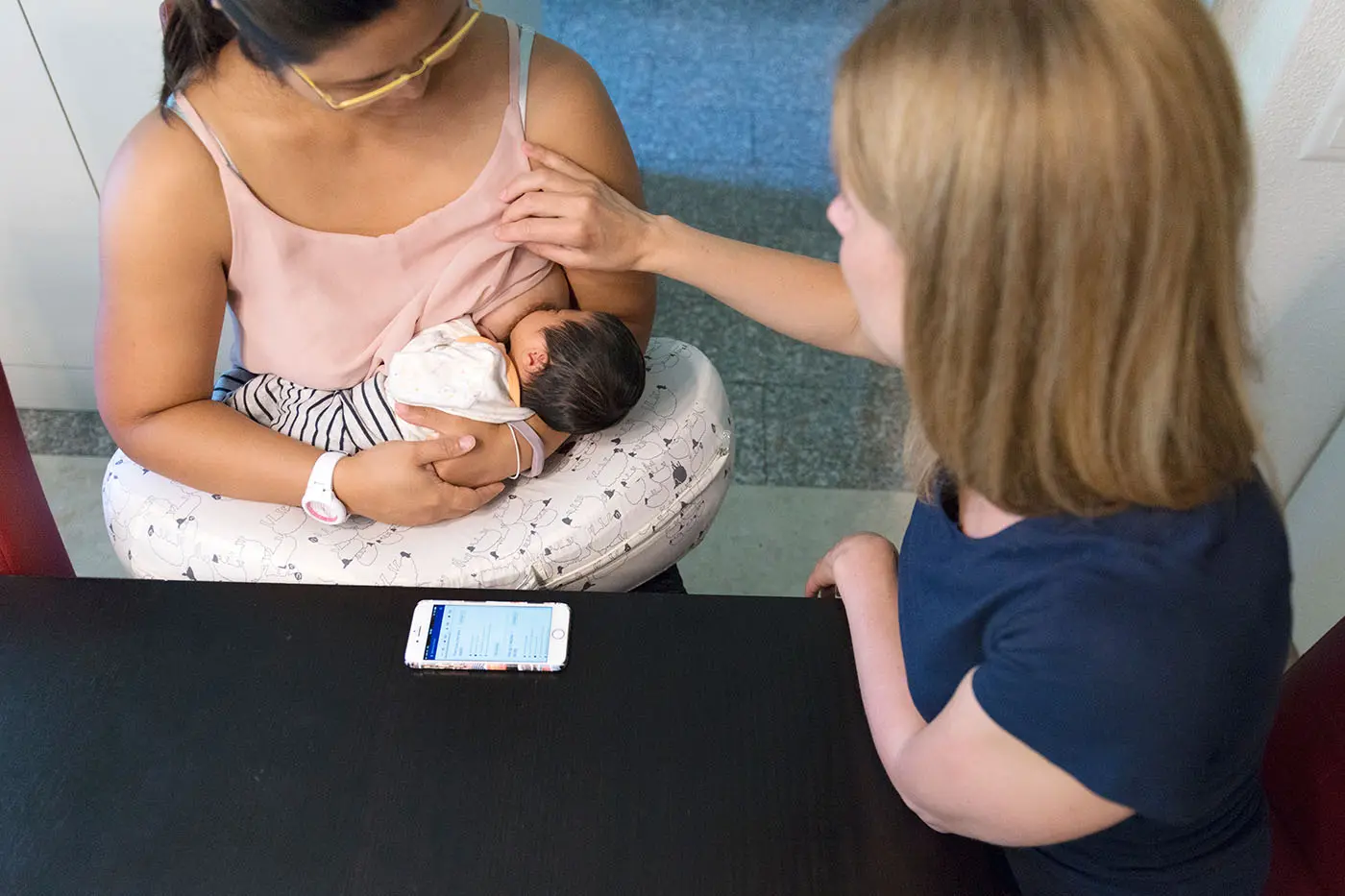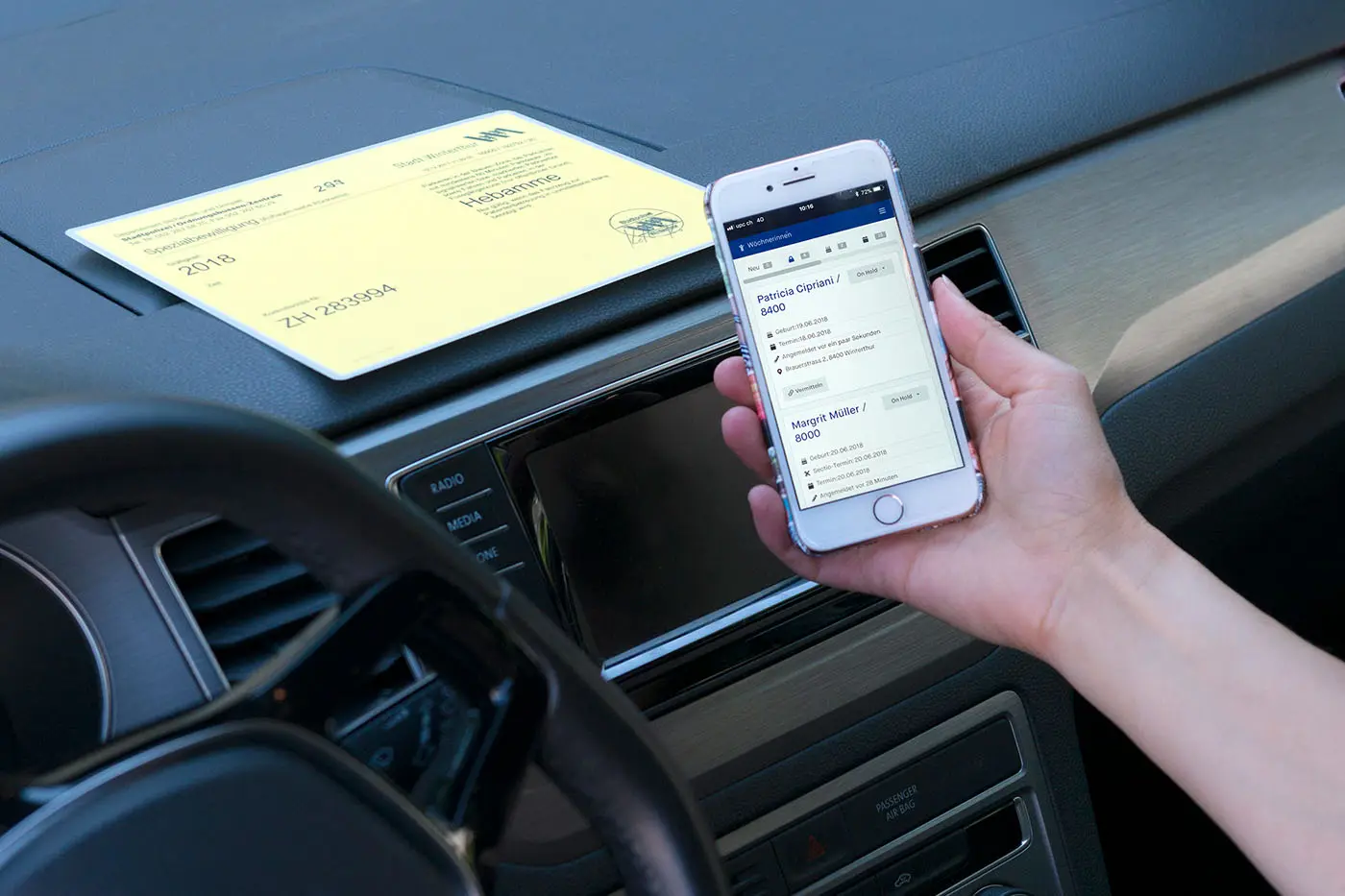Network of midwives reduces pressure on hospitals
The non-profit organisation Familystart in Zurich organises contact between women and self-employed midwives who provide postnatal care at home. Over 3000 women take advantage of this service annually. According to a ZHAW study, this substantially reduces pressure on hospitals to find qualified midwives, and vulnerable families are among those who benefit the most.
Nowadays, women are discharged from hospital only a few days after giving birth since, with the introduction of the standard fee-per-case system, the average post-birth hospital stay has decreased to about four days. Self-employed midwives now administer some of the post-natal care at the mothers’ homes after their return from hospital. In order to make sure that every mother receives this care and that nobody falls through the health system’s safety net, midwives in Zurich came together to form the Familystart Zurich network in 2015.On behalf of the network and funded by the lottery of the Canton of Zurich, researchers from the ZHAW have now evaluated the services they provide. In the study, quantitative data provided by Familystart, self-employed Swiss midwives and contractual hospitals was analysed, and interviews were conducted with health care professionals, health care users and midwives.
Guaranteed care of families
In 2016, Familystart Zurich brought together 3,100 women and self-employed midwives who provided post-natal care for both mother and child at home. About 40 percent of the women signed up for this service during pregnancy, while the majority waited until after giving birth. For women who give birth at one of the partner hospitals, the service is guaranteed. However, in almost all cases, women who give birth in other hospitals are put in touch with a midwife, as well. “The midwife network is particularly important for women who are unfamiliar with the Swiss health system, who do not speak the language, or who are socially disadvantaged or psychologically vulnerable,” explains ZHAW researcher Susanne Grylka.These women have difficulty finding a midwife or they are unfamiliar with their options for postnatal care outside the hospital. “Familystart Zurich has become an important player in the health care of the Canton of Zurich, organising midwives for about 20 percent of all new mothers,” says Carolina Iglesias, president of Familystart Zurich.
Relief for nursing staff
Thanks to Familystart’s midwife placement service, the administrative workload of hospital nursing staff has been reduced by up to 85 percent. According to a contributor to the ZHAW study, the Winterthur Institute of Health Economics, the economic value added for the hospitals mainly manifests itself in time-saving, satisfaction and lower stress levels among nursing staff. Previously, the search for midwives was very time-consuming - often several midwives had to be contacted before a suitable candidate was found. The non-profit has also kept its promise to guarantee midwife placements for women in contractual hospitals. Midwives and nurses who join the Familystart network also enjoy benefits from their membership: thanks to the coordination services provided by Familystart, they can plan their schedules more efficiently, avoid gaps in their working week more easily and reduce travel times by caring for women who live in their vicinity.
Predominantly psychosocially vulnerable families
More than 90 percent of the women who benefited from a Familystart midwife placement in 2016 had given birth in one of the contractual hospitals. They mainly lived in the Canton of Zurich, the majority in the city of Zurich itself. 68 percent were foreign nationals, mostly from Southern and Eastern Europe, as well as from Africa and Asia. Compared to women in Zurich who find a midwife independently, Familystart users were more often foreign nationals (Familystart: 68 percent, others: 41 percent), had no professional or vocational training (Familystart: 26 percent, others: 9 percent) and were not gainfully employed (Familystart: 38 percent, others: 25 percent). In addition, they had more often experienced C-sections, premature births or poverty.
The affected women appreciate the support they were given in finding a midwife and the post-natal care they received, and they feel it took pressure off them. According to the ZHAW researchers, this is where Familystart reveals its true potential: they recommend that the midwife network strengthen its links with hospitals and other institutions in order to provide even better care for vulnerable families. For instance, network members often depend on community interpreters, who are also able to facilitate intercultural communication.
Downloads
- Medienmitteilung (in German)(PDF 145,1 KB)
- Studie Familystart (in German)
- Picture midwife with newborn (upright)
- Picture midwife with newborn(landscape)
- Picture newborn
- Picture midwife checking the newborn(upright)
- Picture midwife checking the newborn (landscape)
- Picture breast feeding mother (upright)
- Picture breast feeding mother (landscape)
- Picture Familystart-App (upright)
- Picture Familystart-App (landscape)
- Picture midwife weighs newborn
